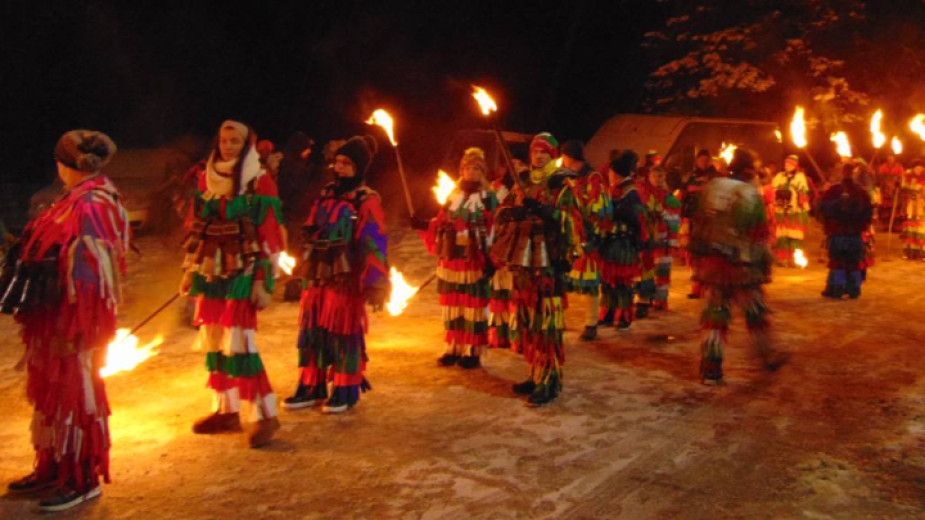 10
10
All Bulgarian masquerade games originate from the ancient rituals related to the birth of the sun around Christmas. With the adoption of Christianity, in order not to defile the newborn God, the custom was blurred. In the western regions of Bulgaria, at the time when the new year used to be celebrated according to the old-style calendar – on the night of January 14 – Surva is still celebrated. When Cheesefare Sunday comes, mummers and their derivatives play in the eastern and southern regions of Bulgaria. The last such games before Pentecost are the Rusalii week and the performance of the so-called Kalushari.
But what all masked groups have in common is performing for health and fertility. Tempted by tradition, Radio Bulgaria accepted the invitation to visit the region of Zemen for Surva.
While we were waiting for the games to begin, we talked with Georgi Dimitrov at the museum of survakars in the village of Elovdol. At the end of each January, their village group participates in the large international festival of masquerade games "Surva", which this year will be held in Pernik from January 24 to 26.
"As far as I remember, I started maybe in first grade, in 1966, as it was interesting for me to see how my father prepared for these Surva games. The thrill has been preserved and one month before the start of the games in the village, we make preparations in advance,” Georgi says. “One month before the group gathers, leaders of the group are chosen - two who have carried bells for a long time.
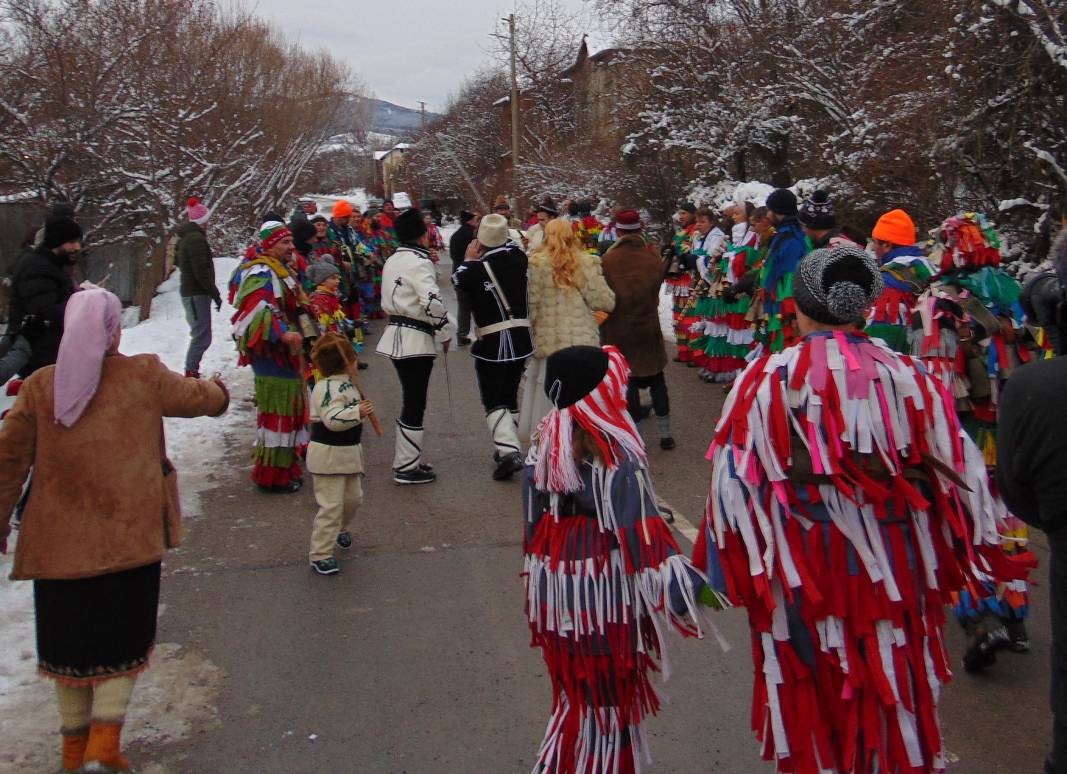
They must have carried them so that they know what the weight is because in the past people walked from village to village - from three to ten kilometres without stopping. A priest, a bride and groom are chosen. There is another rite called Christmas Eve. We mainly do it when there is a festival in Pernik. But in most cases the ritual presented in the village is a wedding. All homes are visited and people wish for everyone to be alive and healthy, to drive away evil spirits. They wish for fertility and perform the survakar horo dance," Georgi says.
Although a century ago only men and young people performed, nowadays women and children also dance with masks, bells and survakar clothes. During the dances, the participants never hold hands. They only join the horo holding wooden sticks or long wooden mallets. In the past it was scary when two survakar groups met without an appointment.
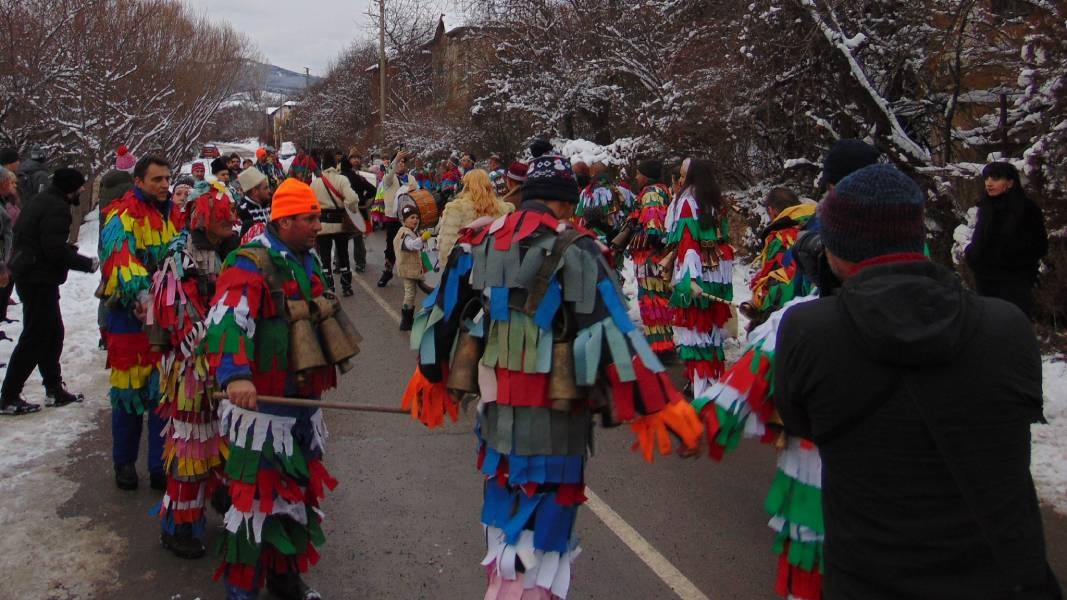
"My father, who is perhaps one of the oldest participants, told me that everyone used to carry long mallets because there were fierce fights when different groups accidentally met. Over time, this disappeared and now everything goes friendly.
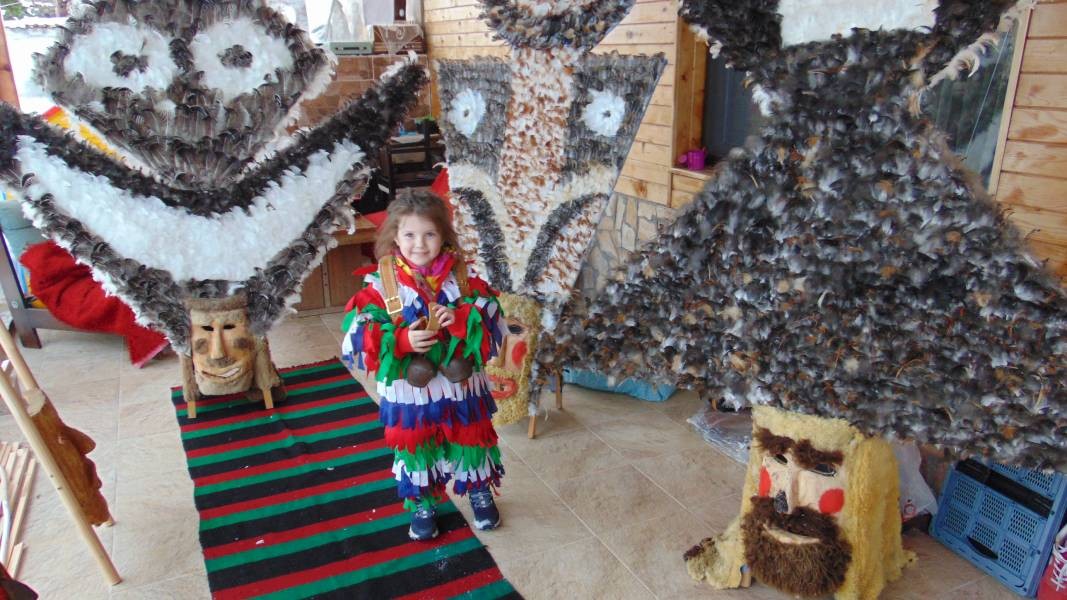
People start to make the masks in September-October. I have a friend who makes my masks. The wooden frame is covered with canvas, it is perfected and feathers are glued on. Mostly chicken feathers are used – we start collecting them in the summer. We go to neighbours too because it takes between 10 and 20 chickens for one face. The feathers must be multi-coloured – red, black, white and variegated ones," he says.
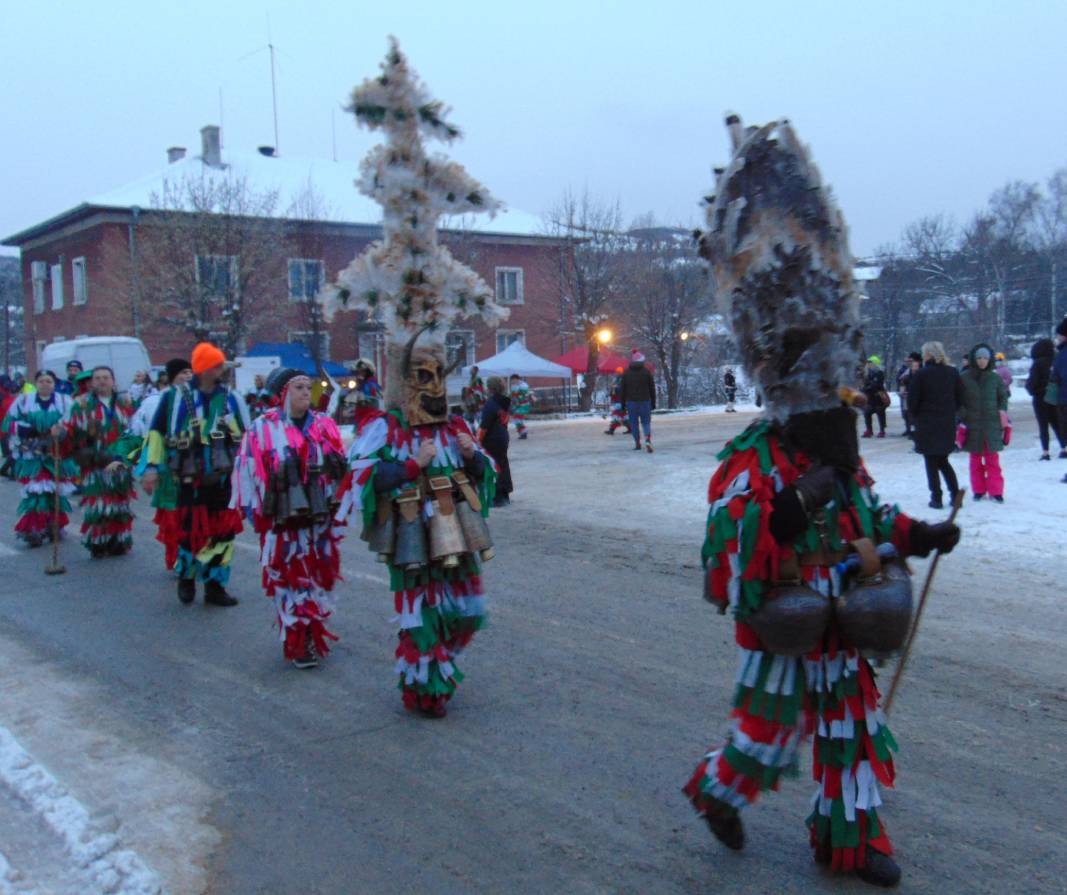
In some villages, herbs were once used instead of feathers to decorate the mask. By putting on the ritual mask, the performer becomes alienated from himself, from the everyday life and passes into the world of magic and the supernatural.
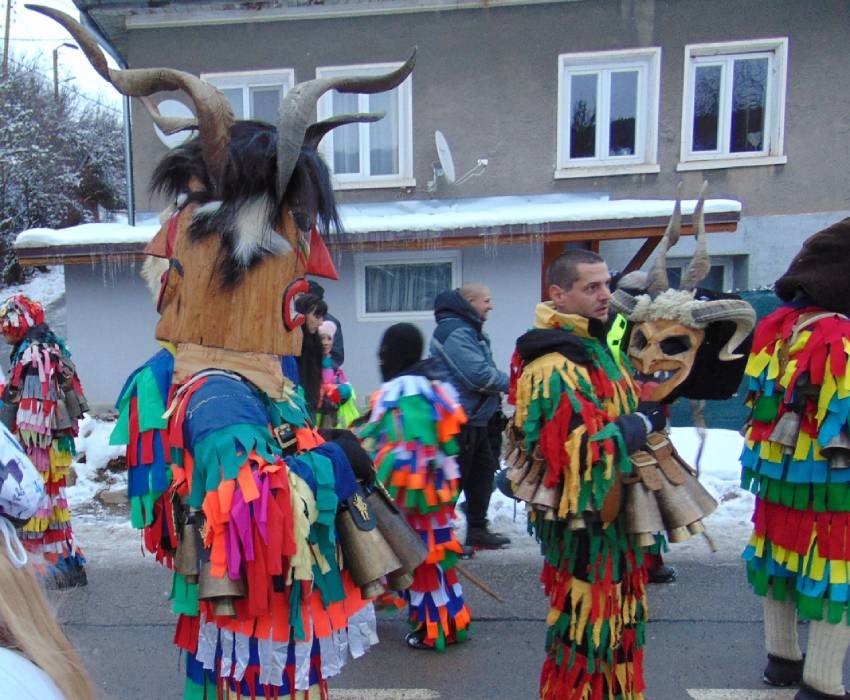
"These masks are traditional. We have masks called ‘heads’ that are made of willow and are perhaps unique in the region. Today, we would also see the bear come out together with a bear trainer. The bear is a bit wet from a lot of running and work. And it wakes up to rub the farmers for prosperity and health," Georgi explains with a smile and hurries to the gathering place for the beginning of the procession.
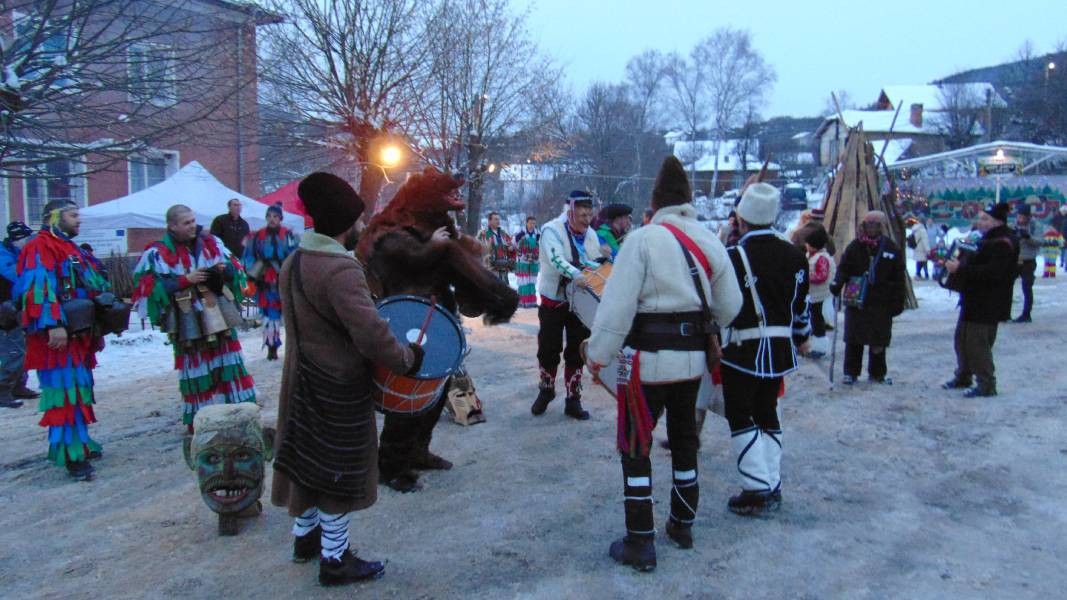
Call it magic or madness, but Surva captivates the participants in the custom, as well as the audience. The impulses are different, but the goal is common – everyone to participate, to merge with that faith that came from the past, with which we survive in the cycles of time and get reborn so that we can be part of the future. After the holiday, the costumes and masks are hidden in a secret place so that they do not lose their power and the men confess in the church to cleanse themselves from the participation in the ancient pagan ritual.
Author: Ivo Ivanov
Publication in English: Al. Markov
Photos and videos: Ivo Ivanov
Scientists from the Sorbonne will study the cultural heritage preserved in the Regional Ethnographic Open-Air Museum "Etar" , informs public broadcaster BNT. In March this year the French scientists together with experts of REOM "Etar" will study elements..
The day of St. Tryphon (1 February old style, 14 February new style) is celebrated by vine growers, falconers and gardeners in Bulgaria. Trifon Zarezan comes around with vine pruning and wine drinking St. Tryphon is believed to help..
The Roma community in Bulgaria is celebrating Vasilyevden /or Vasilitsa, Bango Vasili (literally the Lame Vasil)/, also known as the Roma New Year , reports the Amalipe Foundation. The Roma New Year combining in its traditions Christmas with St...

+359 2 9336 661
